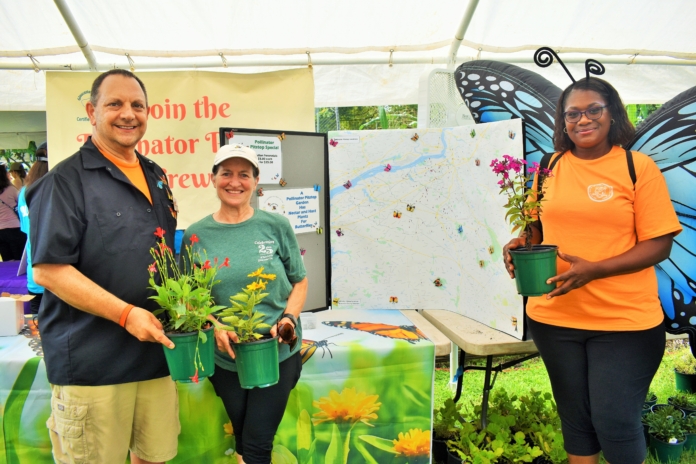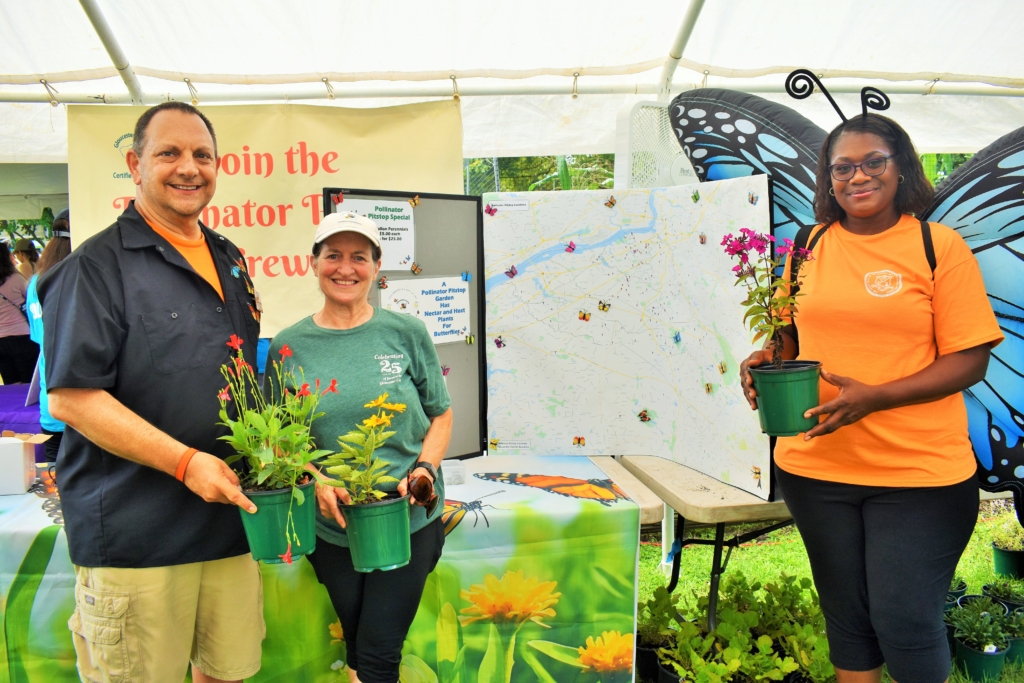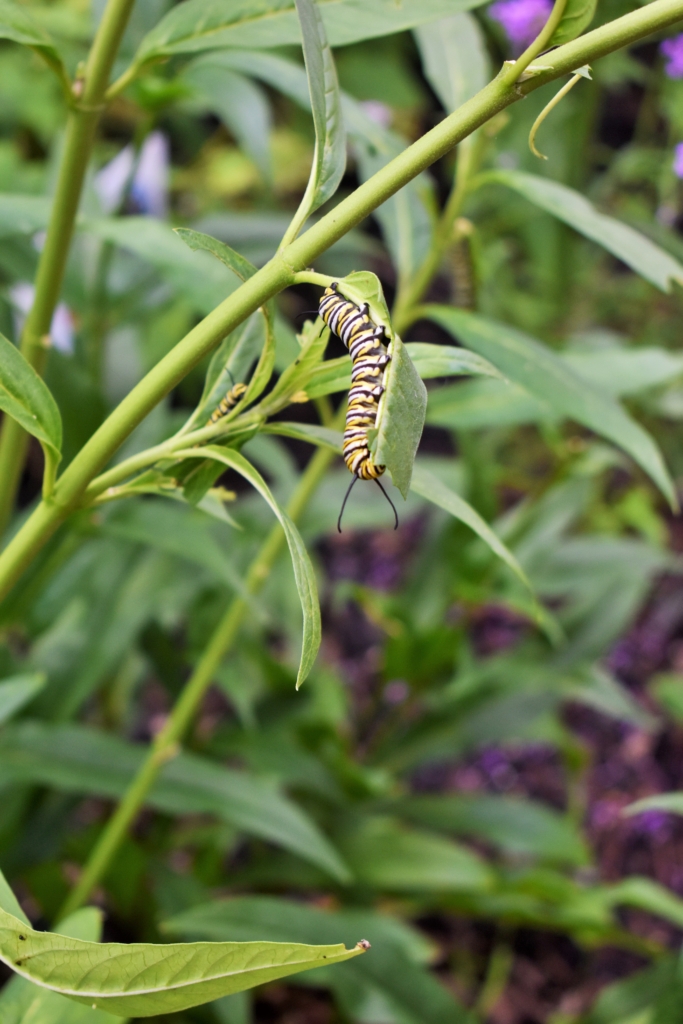

Encouraging residents to join a pollinator pit stop crew at the Red Bank Battlefield Park on July 12 were Gloucester County Certified Gardeners Dan Battisti (left to right), Lisa Neimeister and Quinn Thomas.

More than 2,000 people, including parents with children, learned the importance of pollinators during a butterfly festival at the Red Bank Battlefield Park on a warm and sunny July 12.
Youngsters took to playground swings and slides, parents shopped at vendor booths and families lined up for a chance to visit the butterfly house created by the Gloucester County Certified Gardeners (GCCG), the annual event’s organizer.
“We have lots of volunteers and have been out here since 8 a.m. to set everything up,” said GCCG’s president, Dan Battisti, who encouraged residents to grow pollinator gardens.
“A pollinator pit stop garden has nectar and host plants for creatures such as butterflies, bees and hummingbirds,” Battisti explained as he showed attendees a map of all of those gardens in the county. “We have a lot of bees and butterflies in Gloucester County.”
The county, he said, is an agricultural area with lots of farms, some of which raise bees to insure pollination of their crops.
“The Gloucester County Certified Gardeners monitor all the gardens in the park,” noted Jen Janofsky, director of Red Bank Battlefield Park. “They do a great job. It is a wonderful partnership.”
“The park is one of more than a dozen projects we have in the county,” added Battisti, who pointed out that the GCCG has more than 100 volunteer members who help take care of various gardens.
“We try to get people to understand how to plant a garden for wildlife, bees and butterflies,” offered Certified Gardener Heather MacGregor.
All pollinators need nectar plants, and butterflies also need host plants to lay their eggs and provide nutrition for the resulting caterpillars. The host plants are the key to the butterfly life cycle and provide food and shelter for the developing larvae, said MacGregor, who helped lead a long line of festival-goers through the butterfly house and pointed out caterpillars on native plants.
Those plants include milkweed, a crucial host plant for Monarch butterflies; dill, fennel and parsley, hosts for Black Swallowtails; Willows, hosts for Viceroy and Red-spotted Purple butterflies; and the spicebush, host to Spicebush Shallowtails.
Battisti thanked Mary Cummings and her staff at the county’s Land Preservation office for helping to organize the festival. Along with Certified Gardeners Lisa Neimeister and Quinn Thomas – who was dressed as a butterfly – Battisti encouraged festival attendees to join the pollinator pit stop crew and purchase the plants at its booth, among them cornflowers, milkweed, parsley, full-size zinnias, lobelia, black-eyed Susan and Lil’ Joe Pye weed.
“Our goal is to connect private and public gardens in Gloucester County as pollinator-friendly spaces,” Battisti pointed out. “A pollinator pit stop is a garden that provides a habitat and nutrition for pollinators, uses non-toxic products and has at least one native plant species.”
Guidelines for the pit stops include finding a garden spot that ideally gets six-plus hours of sun, watering its plants to keep them moist for the first two weeks and being patient.
“A garden may take a few years to fully establish,” noted Battisti.
The butterfly festival is one of two large events the GCCG program sponsors each year. The other is an annual plant sale the Saturday before Mother’s Day at Scotland Run Park.
“We grow 3,000 plants in the county greenhouses and we sell out every year,” Battisti said. “This year, the 450 heirloom tomatoes sold out in less than an hour.”
Certified Gardeners are trained volunteers who assist the county with horticulture programs and information for the public. They must volunteer 60 hours in their communities in programs sponsored by the Land Preservation office.
For more information, go to gardener@co.gloucester.nj.us.
